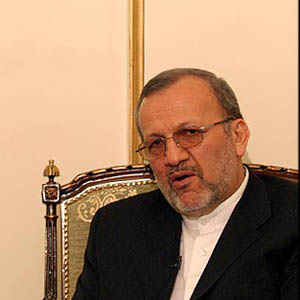We should update Iran-Soviet Union agreements
Mottaki’s speech at the opening session of Caspian Sea special working group meeting in Tehran

Fortunately we are now at a stage in which finalization of the Caspian Sea’s legal regime by the littoral states seems an accessible goal.
The significant agreements of the recent years are the result of true will and earnestness of littoral states’ in reaching a collective solution on Caspian-related issues and mutually advantageous regional cooperation.
For Iranians, Caspian Sea has been always a reminder of the glory of nature, the legend of hard-working people, economic prosperity and life itself.
Throughout millenniums and centuries, the generous Caspian has always kept its arms open for the Iranians and called them towards herself.
Hence, as a country with the most inhabitants on the Caspian coast, Iran has always followed Caspian-related matters with carefulness and full cooperation.
Definitely other littoral states have also the same feeling. This shows the importance and sensitivity of the responsibility the participants in this meeting have.
The legal regime of Caspian Sea must be compiled in such a way that reflects and responds to the expectations and demands of those living on its coast, whether in the present or future.
Taking long-term shared interests into consideration, our guidelines throughout this process could be trying to maintain the security in Caspian Sea, to conserve the environment and its biological diversity and to turn this sea into a stage for economic prosperity and regional convergence.
It is of advantage for all Caspian littoral states to set their activities in the sea and compile its legal regime such that no country feels a sense of loss.
All Caspian littoral states must fairly enjoy the economic advantages of this sea and it is only by this that sustained security can be set.
For most of the last year Tehran was the center of successive diplomatic visits to advance political and legal issues of Caspian Sea.
Five meetings of special working groups at the level of foreign deputy ministers were held to prepare the settings for the upcoming summit, finalize the declaration and develop the summit agenda.
The friendly meeting of foreign ministers was held in Tehran last July and its key achievement was finalization of the summit declaration. In middle of October Tehran hosted the second Caspian Sea summit. As the five presidents attending the summit and political analysts have confirmed, the summit was highly successful.
In this summit leaders of the five littoral states announced the stances and policies of their country and negotiated on different issues of the Caspian Sea. The negotiations ended in release of an important 25-article declaration.
This declaration is the most important political document agreed upon by the five littoral states, defining the principles according to which the present and future courses of cooperation between littoral states should be formed
The declaration will also pave the way for talks between the officials of littoral states at all levels. Also, an appropriate legal background, which is the agreements between Iran and the Soviet Union in 20th century, has helped a great deal to take negotiations further and keep the relations friendly.
Iran-Soviet Union agreements, especially sections concerning Caspian Sea in navigation and trade section, and Friendship Treaty that have set the legal principles of this sea from the first half of 20th century up to now, have made it easier to complete and update the arrangements. Any further agreement concerning the Caspian Sea must be made with regard to this background and based on the principle of friendship.
In addition to legal issues of the Caspian Sea, during the recent years we have witnessed great achievements, expansion and consolidation of relations between Caspian littoral states in various areas. Signing an environmental convention known as the Tehran Convention, and also cooperation among littoral states to specify each country’s allocation of caviar are good examples.
However, there’s a long way to reach the acceptable level for environmental status of this sea and also conservation of aquatics. The littoral states must show more seriousness to actualize the agreements, enforce appropriate policies in national level and continue talks at a regional level.
Also during the Tehran summit, the presidents made other agreements. One of them was holding an economic conference in upcoming summer in Russia. During this conference Iran’s proposition to establish an organization for economic cooperation between Caspian Sea littoral states will be discussed.
The Islamic Republic of Iran has started preparations for a fruitful participation in this conference and it is waiting for the Russian side to provide it with more information on the way the conference is going to be held.
Another issue is increasing cooperation between littoral states in security and military areas. Setting special arrangements to establish security in the Caspian Sea has come into consideration of the littoral states recently and propositions have been presented up to now.
During the October summit, our brother and friend state, the Republic of Azerbaijan, accepted the responsibility of coordination for the talks in this field and promised to do what is needed.
I hope with the activities of Azerbaijan and help of other countries, this [security arrangements] becomes accomplished in the shortest time.

